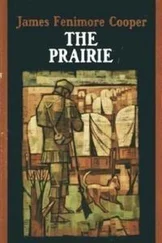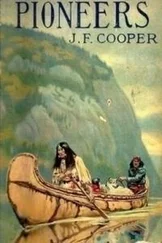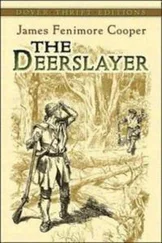Джеймс Купер - The Lake Gun
Здесь есть возможность читать онлайн «Джеймс Купер - The Lake Gun» — ознакомительный отрывок электронной книги совершенно бесплатно, а после прочтения отрывка купить полную версию. В некоторых случаях можно слушать аудио, скачать через торрент в формате fb2 и присутствует краткое содержание. Жанр: Прочие приключения, на английском языке. Описание произведения, (предисловие) а так же отзывы посетителей доступны на портале библиотеки ЛибКат.
- Название:The Lake Gun
- Автор:
- Жанр:
- Год:неизвестен
- ISBN:нет данных
- Рейтинг книги:5 / 5. Голосов: 1
-
Избранное:Добавить в избранное
- Отзывы:
-
Ваша оценка:
- 100
- 1
- 2
- 3
- 4
- 5
The Lake Gun: краткое содержание, описание и аннотация
Предлагаем к чтению аннотацию, описание, краткое содержание или предисловие (зависит от того, что написал сам автор книги «The Lake Gun»). Если вы не нашли необходимую информацию о книге — напишите в комментариях, мы постараемся отыскать её.
The Lake Gun — читать онлайн ознакомительный отрывок
Ниже представлен текст книги, разбитый по страницам. Система сохранения места последней прочитанной страницы, позволяет с удобством читать онлайн бесплатно книгу «The Lake Gun», без необходимости каждый раз заново искать на чём Вы остановились. Поставьте закладку, и сможете в любой момент перейти на страницу, на которой закончили чтение.
Интервал:
Закладка:
"You must mean the 'Wandering. Jew?'"
"So the pale-faces call him; but he was never a Jew. 'Tis a chief of the Senecas, thrown into the lake by the Great Spirit, for his bad conduct. Whenever he tries to get upon the land, the Spirit speaks to him from the caves below, and he obeys."
"THAT must mean the 'Lake Gun?'"
"So the pale-faces call it. It is not strange that the names of the red man and of the pale-faces should differ."
"The races are not the same, and each has its own traditions. I wish to hear what the Senecas say about this floating tree; but first have the goodness to point it out to me."
The young Indian did as Fuller requested. Aided by the keener vision of the red man, our traveler at length got a glimpse of a distant speck on the water, which his companion assured him was the object of their mutual search. He himself had been looking for the "Jew" a week, but had asked no assistance from others, relying on the keenness of his sight and the accuracy of his traditions. That very morning he had first discovered the speck on the water, which he now pointed out to his companion.
"You think, then, that yonder object is the 'Wandering Jew?'" asked Fuller.
"It is the Swimming Seneca. Five hundred winters has he been obliged to keep in the chilled waters of the lake; in five hundred more the Manitou will let him rest on its bottom."
"What was the offense that has drawn down upon this chief so severe a punishment?"
"Listen to our traditions, and you shall know. When the Great Spirit created man, He gave him laws to obey, and duties to perform-"
"Excuse me, Seneca, but your language is so good that I hardly know what to make of you."
An almost imperceptible smile played about the compressed lip of the young Indian, who, at first, seemed disposed to evade an explanation; but, on reflection, he changed his purpose, and communicated to Fuller the outlines of a very simple, and, by no means, unusual history. He was a chief of the highest race in his tribe, and had been selected to receive the education of a pale-face at one of the colleges of that people. He had received a degree, and, yielding to the irrepressible longings of what might almost be termed his nature, he no sooner left the college in which he had been educated, than he resumed the blanket and leggings, under the influence of early recollections, and a mistaken appreciation of the comparative advantages between the civilized condition, and those of a life passed in the forest and on the prairies. In this respect our young Seneca resembles the white
American, who, after a run of six months in Europe, returns home with the patriotic declaration in his mouth, that his native land is preferable to all other lands. Fuller soon understood the case, when both reverted to their common object in coming thither. The young Seneca thereupon resumed his explanation.
{the young Indian = almost certainly based on Abraham La Fort or De-hat-ka-tons (1799–1848), an Oneida Indian who attended Geneva College in the late 1820s, but who later abandoned Christianity and returned to his traditional way of life}
"These laws of the Great Spirit," continued the Seneca, "were not difficult to obey so long as the warrior was of a humble mind, and believed himself inferior to the Manitou, who had fashioned him with His hands, and placed him between the Seneca and the Cayuga, to hunt the deer and trap the beaver. But See-wise was one of those who practiced arts that you pale-faces condemn, while you submit to them.
He was a demagogue among the red men, and set up the tribe in opposition to the Manitou."
{See-wise = intended to represent William Henry Seward's surname}
"How," exclaimed Fuller, "did the dwellers in the forest suffer by such practices?"
"Men are every where the same, let the color, or the tribe, or the country be what it may. It was a law of our people, one which tradition tells us came direct from the Great Spirit, that the fish should be taken only in certain seasons, and for so many moons. Some thought this law was for the health of the people; others, that it was to enable the fish to multiply for the future. All believed it wise, because it came from the Manitou, and had descended to the tribe through so many generations: all but See-wise. He said that an Indian ought to fish when and where he pleased; that a warrior was not a woman; that the spear and the hook had been given to him to be used, like the bow and arrow, and that none but cowardly Indians would scruple to take the fish when they wished. Such opinions pleased the common Indians, who love to believe themselves greater than they are. See-wise grew bolder by success, until he dared to say in council, that the red men made the world themselves, and for themselves, and that they could do with it what they pleased. He saw no use in any night; it was inconvenient; an Indian could sleep in the light as well as in the darkness; there was to be eternal day; then the hunt could go on until the deer was killed, or the bear treed. The young Indians liked such talk. They loved to be told they were the equals of the Great Spirit. They declared that See-wise should be their principal chief. See-wise opened his ears wide to this talk, and the young men listened to his words as they listened to the song of the mocking-bird. They liked each other, because they praised each other. It is sweet to be told that we are better and wiser than all around us. It is sweet to the red man; the pale-faces may have more sober minds-"
The Seneca paused an instant, and Fuller fancied that a smile of irony again struggled about his compressed lip. As the traveler made no remark, however, the youthful warrior resumed his tale.
"I hear a great deal of what demagogues are doing among your people, and of the evil they produce. They begin by flattering, and end by ruling. He carries a strong hand, who makes all near him help to uphold it. In the crowd few perceive its weight until it crushes them.
"Thus was it with See-wise. Half the young men listened to him, and followed in his trail. The aged chiefs took counsel together. They saw that all the ancient traditions were despised, and that new conduct was likely to come in with new opinions. They were too old to change. What was done has never been said, but See-wise disappeared. It was whispered that he had gone down among the fish he loved to take out of season. There is one tradition, that he speared an enormous salmon, and the fish, in its struggles, drew him out of his canoe, and that his hands could not let go of the handle of his spear. Let this be as it may, no one ever saw See-wise any more, in the form in which he had been known to his people. At length the trunk of a tree was seen floating about the Seneca, and one of the oldest of the chiefs, pointing to it, pronounced the name of 'See-wise.' He would fish out of season, and his spirit is condemned, they say, to float among the salmon, and trout, and eels, for a thousand winters. It was not long after this that the lake began to speak, in a voice loud as the thunder from the clouds. The Seneca traditions say this is the Manitou calling to See-wise, when he goes down after the fish, out of season."
"And do you, an educated man, believe in this tale?" asked Fuller.
"I can not say. The things learned in childhood remain the longest on the memory. They make the deepest marks. I have seen the evil that a demagogue can do among the pale-faces; why should I not believe the same among my own people?"
"This is well enough, as respects the curse on the demagogue; but lakes do not usually-"
Fuller had got thus far, when the Seneca, as if in mockery, emitted the sound that has obtained the name of the "Lake Gun" among those who have lived on its banks in these later times. Perhaps it was, in part, the influence of the Seneca's legend, united to the opinions and statements of the inhabitants of that region, which conspired to make our traveler start, in awe and surprise; for, certainly, the deep-mouthed cannon never gave forth a more impressive and sudden concussion on the ear.
Читать дальшеИнтервал:
Закладка:
Похожие книги на «The Lake Gun»
Представляем Вашему вниманию похожие книги на «The Lake Gun» списком для выбора. Мы отобрали схожую по названию и смыслу литературу в надежде предоставить читателям больше вариантов отыскать новые, интересные, ещё непрочитанные произведения.
Обсуждение, отзывы о книге «The Lake Gun» и просто собственные мнения читателей. Оставьте ваши комментарии, напишите, что Вы думаете о произведении, его смысле или главных героях. Укажите что конкретно понравилось, а что нет, и почему Вы так считаете.

![Джеймс Купер - Пионеры, или У истоков Саскуиханны [The Pioneers, or The sources of the Susquehannah]](/books/395797/dzhejms-kuper-pionery-ili-u-istokov-saskuihanny-t-thumb.webp)
![Джеймс Купер - Последний из могикан, или Повествование о 1757 годе [The Last Of The Mohicans]](/books/397341/dzhejms-kuper-poslednij-iz-mogikan-ili-povestvovan-thumb.webp)
![Джеймс Купер - Зверобой, или Первая тропа войны [The Deerslayer, or The First Warpath]](/books/398571/dzhejms-kuper-zveroboj-ili-pervaya-tropa-vojny-the-thumb.webp)








